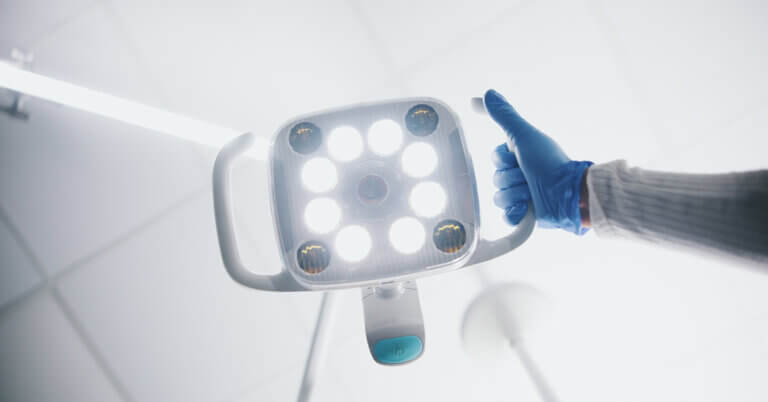September 23, 2025

Unethical Disruption: When Innovation Lacks Integrity
I first learned about Clayton Christensen’s theory of Disruptive Innovation when I was deep into my first post-college job in a strategy consultancy. Truth be told, the partner I was working for at the time gave me The Innovator’s Prescription, and after reading the introduction, I determined it was simply too long to finish. I put it down and didn’t think about it, or its insights, for a while.
That was a mistake. Christensen’s established business theories have not only stood the test of time, they’ve informed the actions of some of the world’s most impactful business and healthcare leaders: Andy Grove, Steve Jobs, Jeff Bezos, Dr. Marc Harrison, and many more. As fate would have it, I reencountered the theories a few years later in graduate school. Then, when I had the opportunity to learn the theories directly from Christensen himself, they took up permanent residence in my thought processes.
Since I work for the Christensen Institute, a nonprofit research organization dedicated to improving the world through Christensen’s theories, it’s safe to say that I’m a believer in the power of theory, and specifically, in the Theory of Disruptive Innovation. But something’s been nagging at me over the past few years. The more I assess potential disruptive innovations in healthcare, the more I wonder: Is there a dark side to disruption? And if so, is it time to take a stand on the ethics of Disruptive Innovation in specific contexts?
Let’s ground ourselves in what the theory says before we address this lofty question.
- Disruptive Innovation is a theory of competitive response.
- Disruptive innovations are not better than sustaining innovations. They are simply a phenomenon.
- Disruptive innovations are not breakthrough technologies that make good products better for existing customers. Instead, they are simple, affordable innovations that increase accessibility and affordability for all.
But what happens when simple, affordable innovations that increase accessibility and affordability for all … do harm on a grand scale? What happens when someone applies the principles of how to successfully develop a disruptive innovation to displace incumbents and destructively alters how our society operates in the process?
Is it still simply a “phenomenon” in these instances? Or do we have a moral obligation to call out the potential harm we see?
For example, my recent work on identifying health misinformation as a disruptor to medical and public health expertise has stopped just shy of saying that disruption in this sense is a moral failing, or that allowing it to continue is ethically unacceptable.
But is it? And if so, how would we judge that? This last question leads us down a slippery slope.
A Society Terrible at Moral Formation
In his 2023 article in The Atlantic, “How America Got Mean,” David Brooks argues that neither social media, changing demographics, economic inequality, nor people’s lack of community participation is individually to blame for the rise of hatred, anxiety, and despair in America. He states that this shift is instead due to the fact that we live in a society that’s terrible at moral formation.
In essence, he says that “generations are growing up in a morally inarticulate, self-referential world.” Unlike healthy societies, we lack an interconnected group of institutions (i.e., family, school, religious groups, community organizations, and workplaces) that shape us into kind and responsible citizens. The result is that we’re mean, lonely, and sad (my paraphrasing). And I must admit, as I write this from my home office while working for a remote company, reflecting on whether or not I participate enough in the community (I don’t), I can’t say I disagree with him.
Our nation, it seems, is missing the opportunity to form entire generations of people into moral beings. Not only do we lack an interconnected group of institutions in our nation, as Brooks highlights, but we’re also losing faith and trust in the ones we do have. As Yuval Levin, senior fellow at the American Enterprise Institute, highlighted in his recent talk to Brigham Young University, the “decline in the expectation that institutions will be formative is at the heart of our loss of faith in institutions.”
Levin highlights that when we no longer trust institutions to form us into “people who are ordered together to achieve a purpose, pursue a goal or advance an ideal,” we lack collective trust. When we lack collective trust, selfishness skyrockets. It’s no longer about us; it’s about me. The crux of his argument hinges on the fact that institutions are no longer formative, but instead, they’ve become performative. He states:
“A failure even to attempt to form trustworthy people, and a tendency not to think of institutions as molds of character and behavior, but as platforms for performance and prominence … when we don’t think of our institutions as formative but performative … they become harder to trust. They aren’t asking for our trust, they’re just asking for our attention.”
In healthcare, trust is eroding in lots of places. Here’s the latest from 4sight’s commentary lineup:
- In Public Health We Trust. Or Not.
- Undue Duplicity: The False Promises of Phantom Debt Relief
- Cut the BS Healthcare
If we don’t trust institutions to form us or our children, and we instead use them for performative functions of self-aggrandizing, we don’t — and won’t — have a cultural or societal foundation for morality.
We’re mean. We’re sad. We’re lonely. We no longer trust each other. And the societal institutions that used to shape us into kind, happy, connected and trusting community members are crumbling, mostly because we don’t trust them or the people who are part of them. We’ve turned inward, and our moral foundations have eroded, or perhaps even evaporated, as a result.
So, if we don’t have a moral foundation, which Brooks and Levin persuasively argue is the case, do we even know what’s ethical anymore? Could we even call out the potential harms of unethical disruptive innovations if we wanted to?
What’s Next When the Foundation is Absent?
In our unprecedented times, where we not only lack moral grounding but also live amidst technological advances like social media and AI that fundamentally alter how we express our humanity, the answer isn’t clear. At the Christensen Institute, we’re being transparent about these issues as we start to recognize them. My colleague, Julia Freeland Fisher, and I have highlighted how specific examples of disruption are playing out in not-so-positive ways here and here.
Building off of these observations, perhaps we need a litmus test for the ethical implications of some disruptive innovations, especially in healthcare. Years ago, the Institute developed a six-question test for disruptive potential, enabling innovators and incumbents alike to assess whether a new innovation had the potential to disrupt the market.
Is it time for another assessment tool that diagnoses the ethics of disruptive innovations?
Making the Hypothetical More Concrete to Define a Path Forward
 I’ve posed some lofty questions. But, to be practical, let’s examine what the dark side of disruption looks like when left unabated. Since
I’ve posed some lofty questions. But, to be practical, let’s examine what the dark side of disruption looks like when left unabated. Since
I study the healthcare industry, I’ll leverage some healthcare examples that highlight how institutions — and the people who make them up — would benefit from embracing moral responsibility.
First, the lack of affordable and accessible mental healthcare in the U.S. is a tragedy. It also creates a market opportunity that innovators have been quick to tap. Perhaps one of the best-known examples of how a company can rise and fall in the industry is Cerebral, an online mental health company that achieved unicorn status and a $4.8 billion valuation in under two years. Founded in 2020, Cerebral grew rapidly, and by 2022, it was under investigation from the DOJ and DEA for its illegal prescribing practices, including overprescription of controlled substances and data privacy violations.
In 2022, Cerebral stopped prescribing controlled substances and agreed not to do it in the future. But one could argue that the damage was already done. In one instance, a 17-year-old died after receiving an antidepressant known to raise the risk of suicidality in teens. Cerebral didn’t obtain parental consent. In late 2024, Cerebral agreed to pay $3.6 million for its unauthorized distribution of controlled substances.
Did the ends justify the means? It certainly doesn’t seem so. The whole Cerebral story begs a series of questions about the lack of morality across the company and its investor base:
- What did the investors say when people were being harmed?
- Where was the ethics committee?
- Where was the reminder of the Hippocratic Oath’s “First, do no harm”?
Cerebral started as a mental health innovation with disruptive potential: It served non-consumers of mental healthcare in an affordable and accessible manner. But as it grew, so did its harms and deceptions. Where was the risk assessment? Where was the gut check that maybe, just maybe, growth at the expense of people’s lives was a bad idea?
As crumbling institutions impact our perception of our moral obligations to stand up for what’s right, good or best for the people of the United States and the world, Cerebral is just one example highlighting that we seem to be collectively at a loss.
So, perhaps my real question is less about whether we have a moral obligation to call out the potential harms of unethical disruption, and more importantly, it’s about how we (re)create a moral foundation that would make people feel that obligation in the first place.
But maybe I’m just channeling Levin’s suggestion that we should all be asking a key question of ourselves, and it’s one we aren’t asking enough: “Given my role here, how should I behave?” I just couldn’t shake the feeling that I had to ask the questions about the ethics of potential disruptions. I had to say something, given my role here.
What about you?
In the name of morality, what should you do next? And most importantly, what will you do next?





